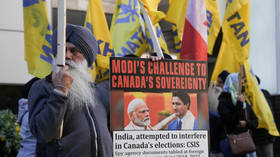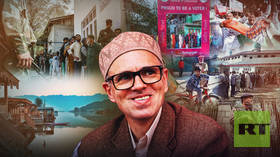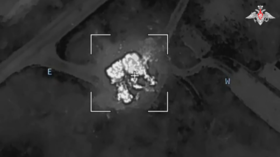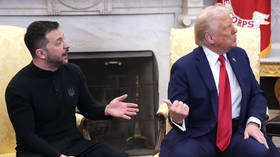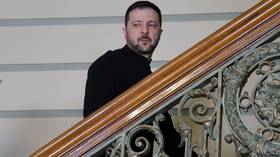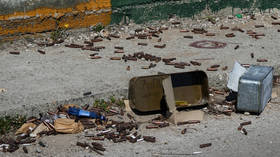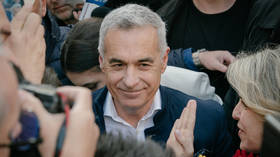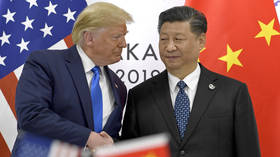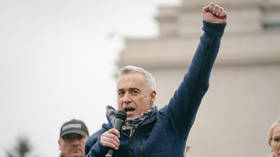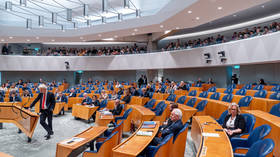Theatre of the absurd: How Trudeau-backed Sikh separatist hijacked Canadian politics
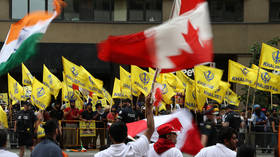
With the current Canada-India spat – triggered by Prime Minister Justin Trudeau’s accusation of New Delhi's involvement in the assassination of Hardeep Singh Nijjar, an activist associated with the Khalistan movement which backs a separate Sikh nation in northern India, things have come full circle for Prime Minister Narendra Modi’s government.
Taking a bold initiative to break with the past and make a new beginning, Modi’s administration in 2016 roped in a British Sikh activist named Jasdev Singh Rai to reach out to Canadians of the same faith. “Rai visited Canada a few times, but reportedly under pressure from the Khalistani lobby, the Trudeau government barred him from entering the country,” recalls a Punjabi journalist in Brampton, Ontario.
The Indian government, however, has continued reaching out to the diaspora Sikhs living in Canada, which is home to about 800,000 of them. Sikhism is a monotheistic religion which was founded in the 15th century in northern India; men are required to wear turbans, ceremonial shorts and special bracelets.
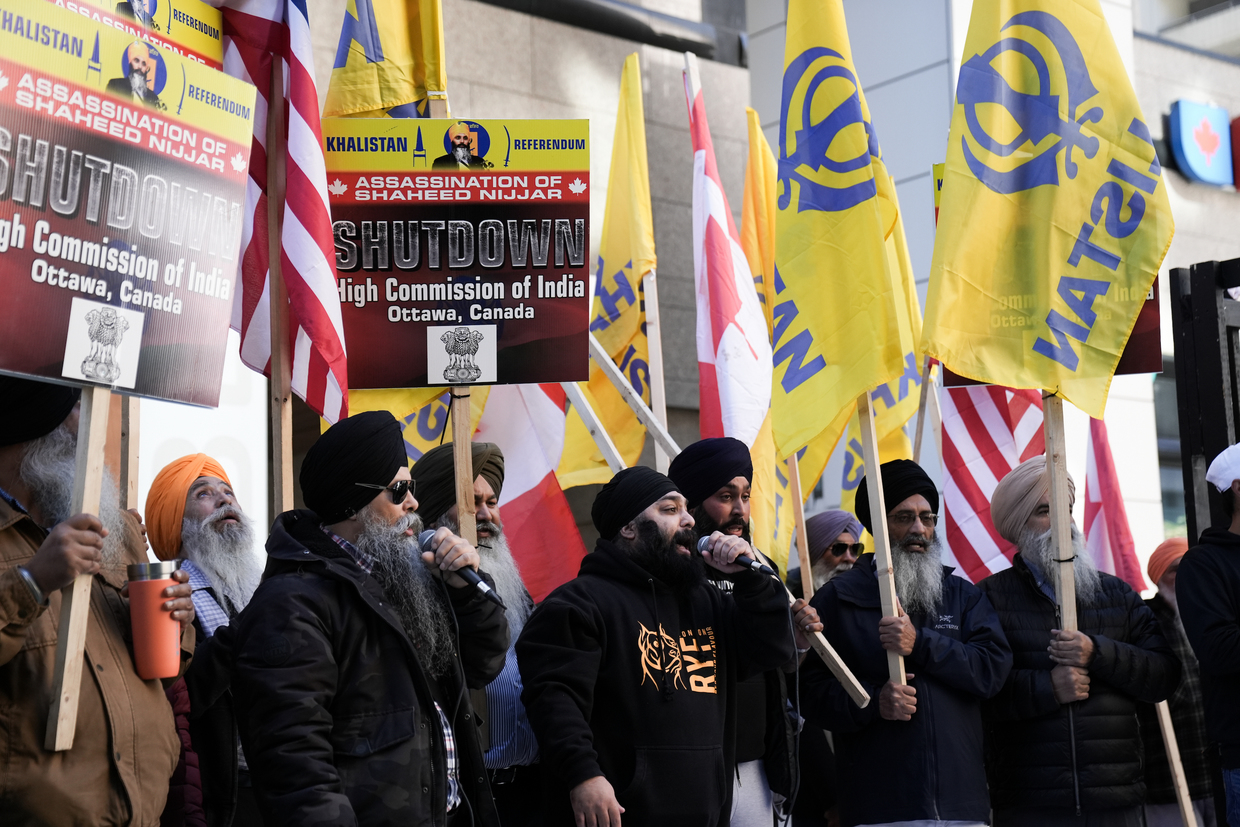
Sikhs were once an integral part of the British Indian Army and have played a role in the post-independence military; one of India’s best-known left-wing freedom fighters, Bhagat Singh, was a Sikh. M.K. Gandhi’s independence movement got its first boost after the 1919 massacre of Sikhs by the British in Amritsar at Jallianwala Bagh.
In 1966 heavily agrarian Punjab was divided into two states (one a Hindi-speaking state called Haryana) leading to a dispute about their shared capital (Chandigarh) and the sharing of river waters for agriculture. A regional party opposed the ruling Congress party, but in order to undermine the opposition, Prime Minister Indira Gandhi encouraged radicals like Jarnail Singh Bhindranwale, who called for a separate Khalistan. This backfired when she ordered the army to storm the Golden Temple in 1984 in order to capture Bhindranwale.
Radical extremism mushroomed, leading to killing sprees in Punjab, Delhi and even Canada, as well as the bombing of an Air India flight in 1985. London’s Southall became a hotbed of separatists. However, a counter-insurgency led by police chief KPS Gill and then-Intelligence Bureau joint director Ajit Doval brought the wave of violence to an end, marked by the 1991 state assembly election. Punjab has been at peace ever since, the movement relegated to handfuls of disgruntled Sikhs sitting in Gurudwaras in London and Canada.
In another bold political move in 2019, when it announced its intention to celebrate the 550th birth anniversary of Sikhism’s founder Guru Nanak, the Modi government also decided to remove the 35-year-old blacklists that barred Sikhs with suspected ties to the Khalistan movement from visiting India.
With the names of as many as 312 Sikhs removed from the blacklists, many were able to visit India for the first time in decades.
In the context of the current crisis, one Sikh whose name was removed from the blacklists was Ripudaman Singh Malik, who had been accused of the 1985 Air India bombing.
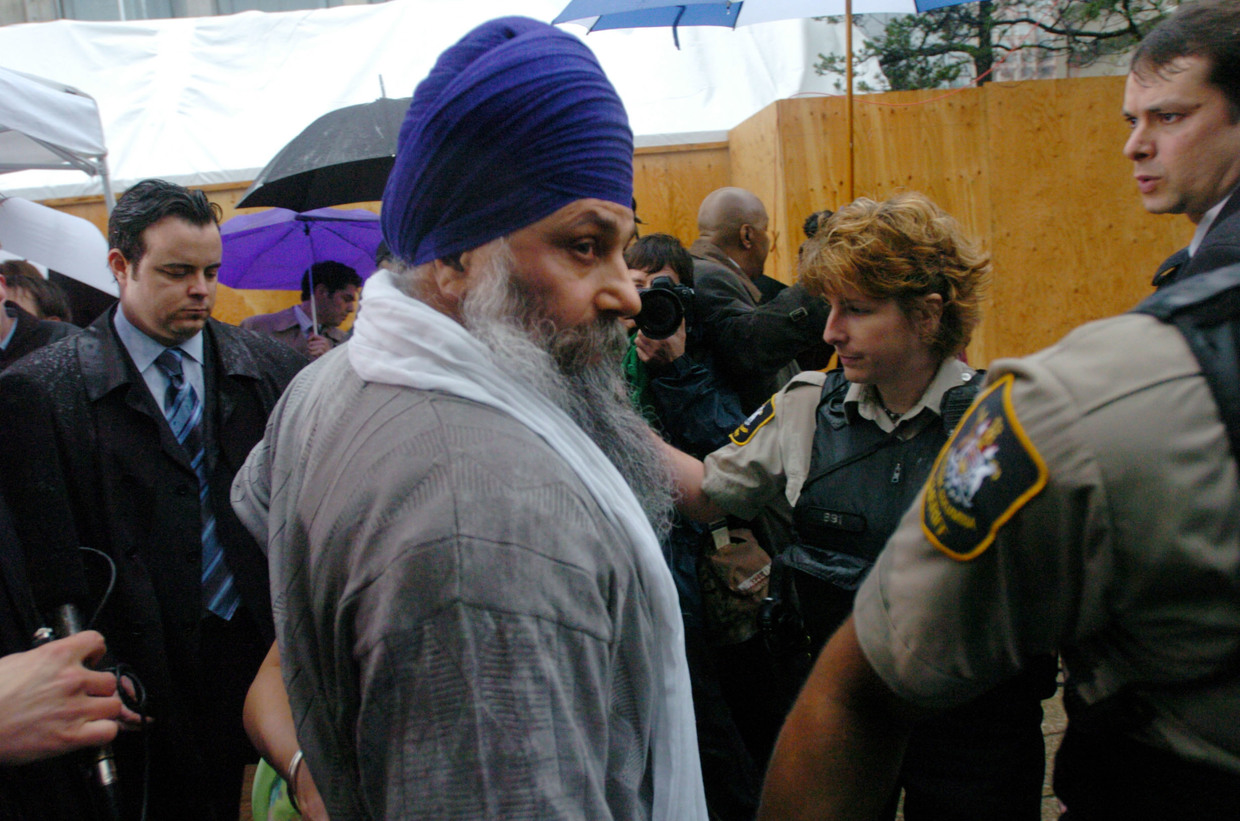
Breaking ranks with the Khalistanis, including Nijjar, Malik visited India. Later, he wrote a letter to Modi thanking him for accepting many Sikh demands.
In the letter, Malik said: “I am writing you this to express my heartfelt gratitude for the unprecedented positive steps taken by yourself to redress long-pending Sikh demands and grievances, including elimination of blacklists that restricted visit to India of thousands of Sikhs living abroad, grant of passports and visas to [asylum-seekers] and their families, reopening of hundreds of 1984-riots closed cases leading to conviction and jail term for some, declaring 1984 riots as ‘genocide’ by then Home Minister Shri Rajnath Singh on the floor of the House, giving compensation or Rs. 5,00,000 ($6,000) per family of the anti-Sikh genocide victims, [and] the opening of the Sri Kartarpur Saheb Corridor facilitating pilgrims from India to visit the revered place of our first Master Guru Nanak Dev Ji (in Pakistan).”
Ripudaman Singh Malik’s new attitude towards India didn’t go down well with the separatists. He was killed in July 2022. While two have been arrested for the assassination, many suspect it was the handiwork of the Khalistanis. Malik’s killing set off a chain of events.
Exactly a year later, in June 2023, Nijjar was assassinated in the parking lot of a Surrey gurdwara in British Columbia. Many saw it as a rivalry killing, but the separatists said India was behind it.
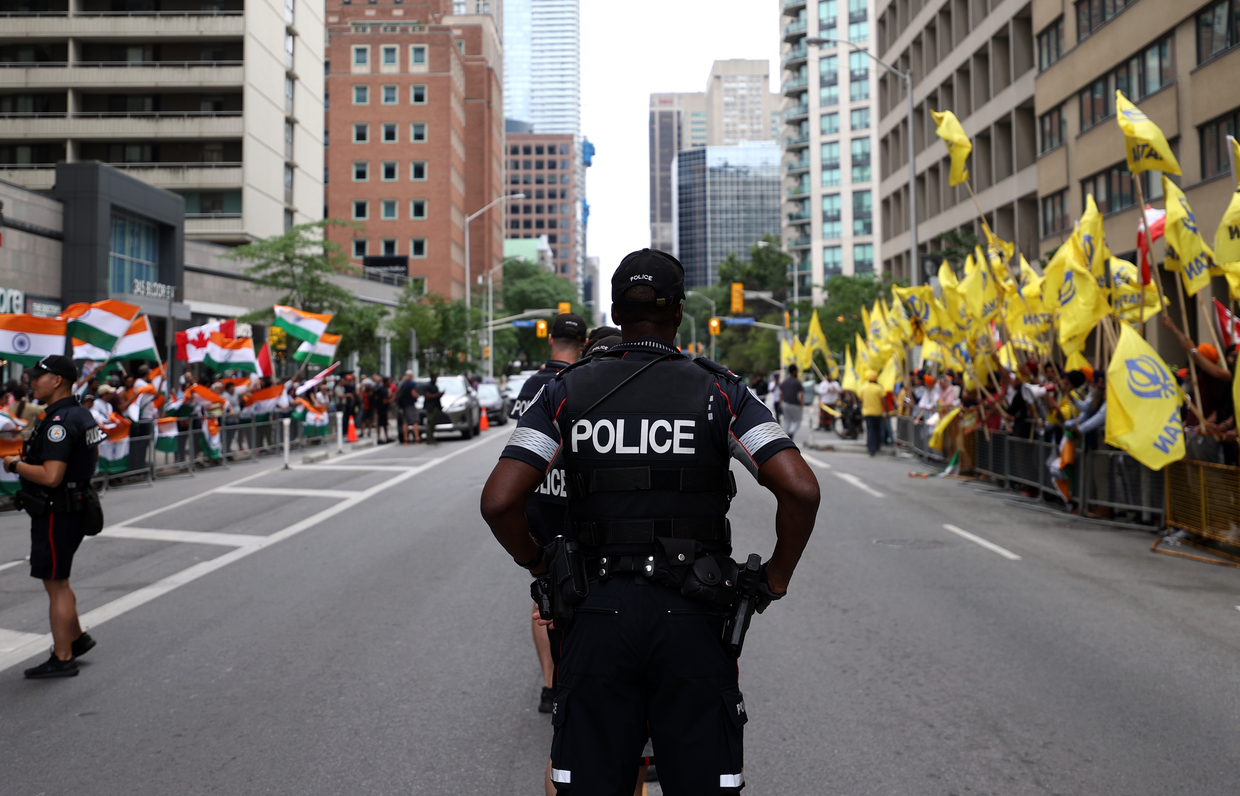
Four months later, on September 18, 2023, the Canadian Prime Minister dropped a bombshell in the House of Commons by linking India to Nijjar’s assassination.
Trudeau had no proof when he made his “credible allegations of a potential link between agents of the Government of India and the killing of a Canadian citizen, Hardeep Singh Nijjar.”
That statement cratered the relationship between Ottawa and New Delhi, leading to tit-for-tat expulsions of diplomats.
A year later, Trudeau held a press conference on a holiday (Labour Day) to accuse India of “widespread violence” in Canada, and posing “a serious threat to our public safety.” He said: “I think it is obvious that the government of India made a fundamental error in thinking that they could engage in supporting criminal activity against Canadians, here on Canadian soil. Whether it be murders or extortion or other violent acts, it is absolutely unacceptable.”
The same day, the Royal Canadian Mounted Police (RCMP) held a press conference to link Indian diplomats and consular officials to `clandestine activities’ in Canada.
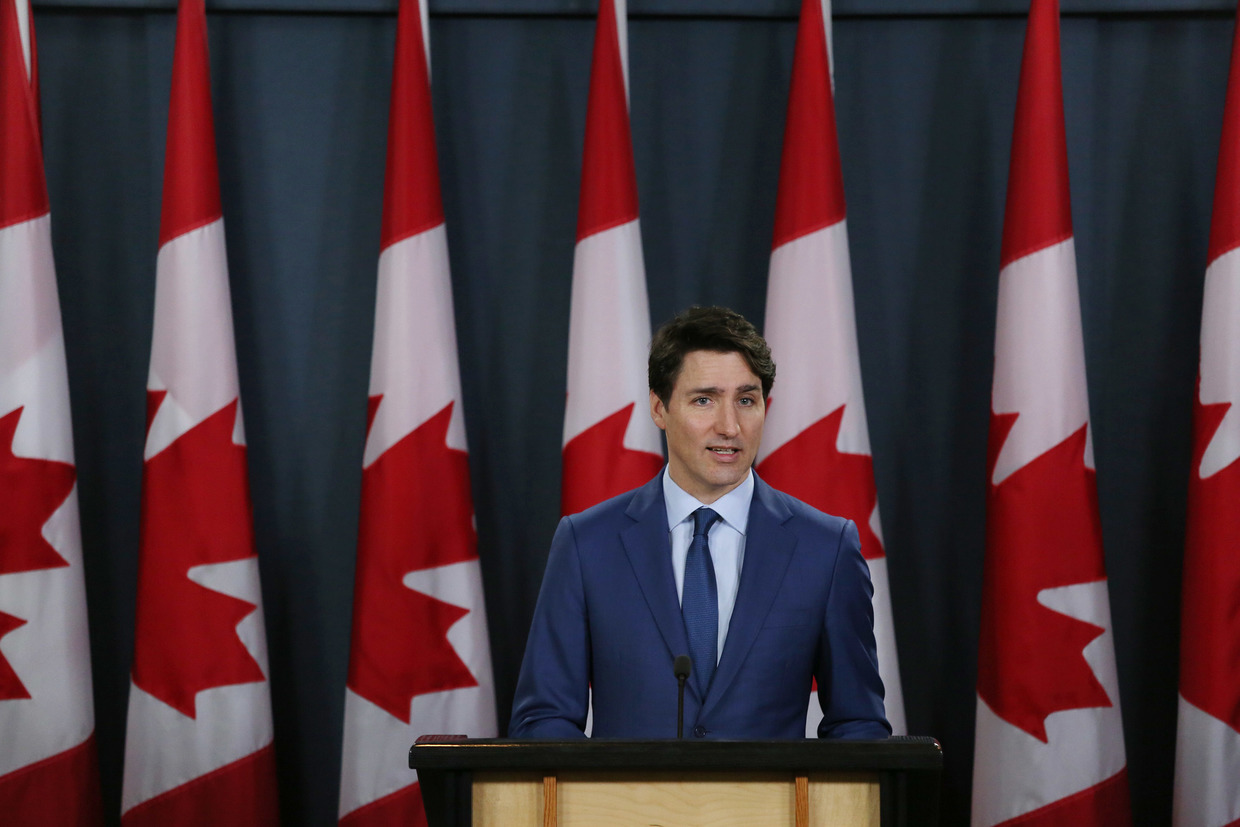
“Amid calls by many MPs of his Liberal Party for him to quit, Trudeau managed to create a new cycle last week to divert attention from his predicament. There is definitely politics behind Trudeau’s move. This issue should have been sorted out behind the scenes,” says an Indo-Canadian businessman with links to the opposition Conservative Party.
With top diplomats expelled from each country following Ottawa’s new allegations, Canada-India relations will remain hostage to pro-Khalistan elements for a long time.
“As India waits on Trudeau to produce evidence for its role in `widespread violence’ in Canada, the trial of the four Indian students accused in the killing of Nijjar may end with all the four turning approver, getting lenient sentences and staying back in Canada,” says an Indo-Canadian lawyer in Ottawa.
“The only hope for any thaw in the relationship lies in the leader who would replace Trudeau after next year’s elections,” he adds.
According to a Mississauga-based chartered accountant, “More than 95% of Canadian Sikhs have nothing to do with Khalistan. They just keep quiet as they don’t want to get in trouble with the hardliners.”
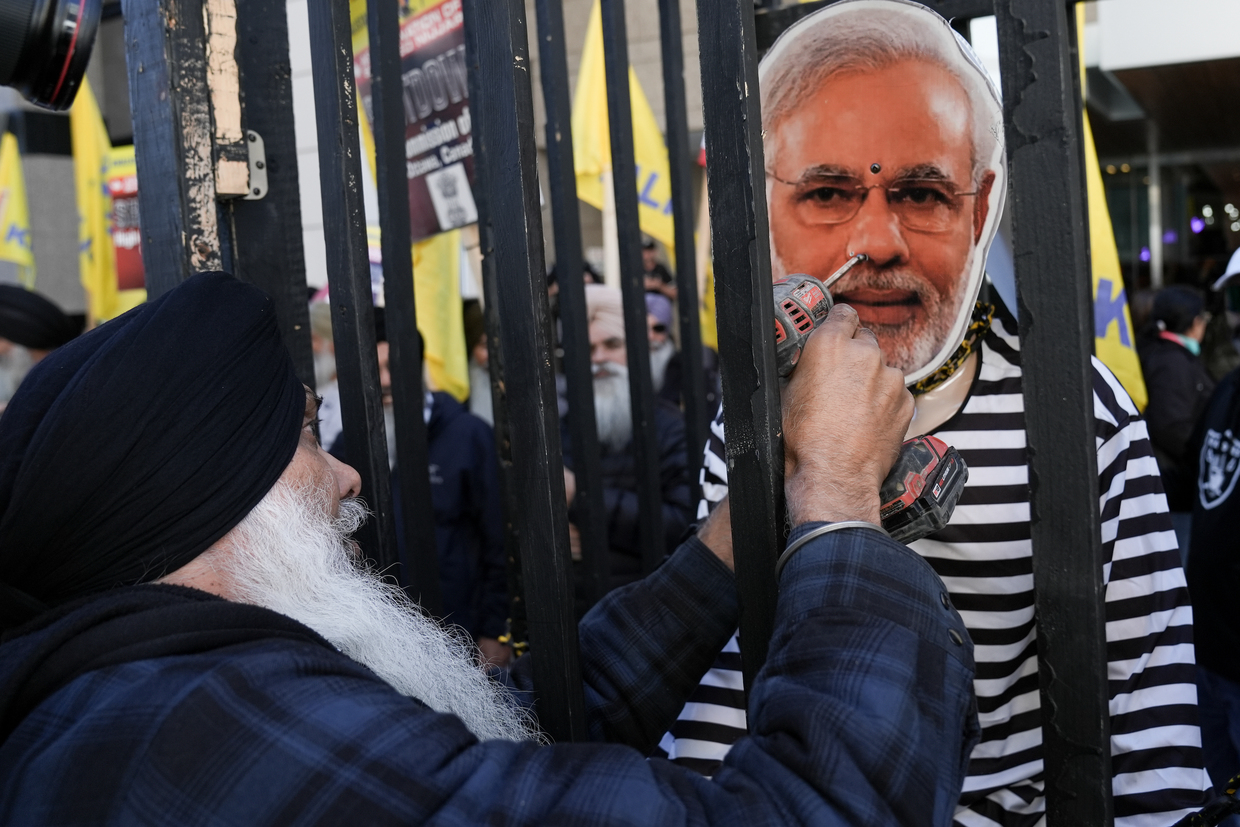
Considering that Khalistan is a dead issue back in India, Canada has become the theatre of the absurd thanks to a small segment of radicals in its Sikh community.
India has reasons to be wary of foreign elements looking to disrupt hard-earned peace in Punjab because much of the violence during the militancywas orchestrated by elements beyond its shores.
The threat from Canada-based Khalistanis will not go away any time soon because these elements remain in control of most gurdwaras. Because of offerings by devotees, these places of worship are a huge source of money for the separatists, who deliberately use these platforms to support (with votes and funds) their favored politicians.
Over the years, the Khalistani leaders controlling these gurdwaras have got their sons and daughters entrenched in Trudeau’s Liberal Party and even the New Democratic Party headed by Jagmeet Singh. Many of these sons and daughters have gone on to become MPs and cabinet ministers.
Trudeau boasted in 2015 that he had more Sikh ministers (four) in his cabinet than Modi. The control of gurdwaras allows this small but very vocal Khalistani group to keep its hold on Canada’s Sikh community and top politicians.
The Modi government had not bargained for this when it took the bold initiative to reach out to Canadian Sikhs in 2016-17.
